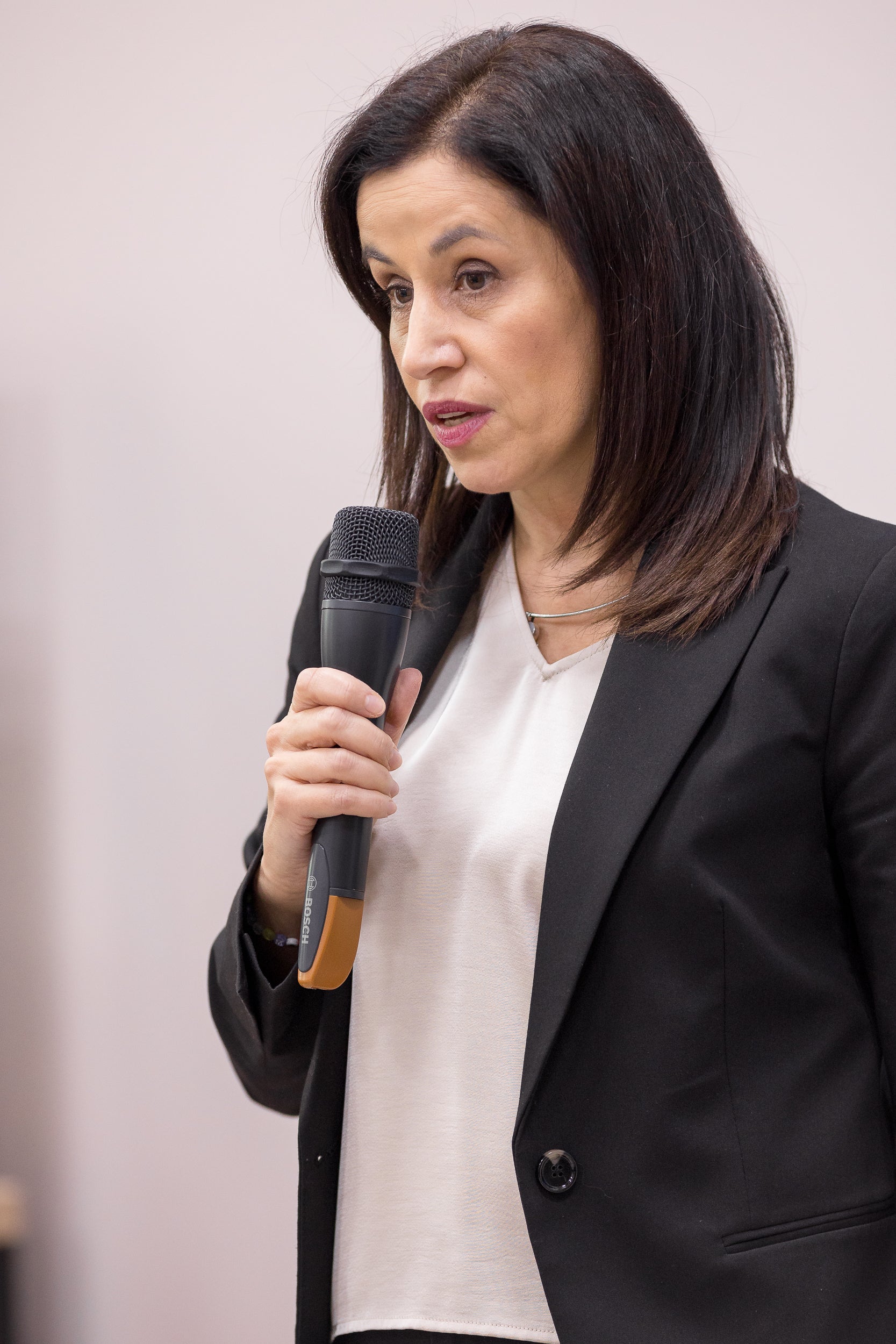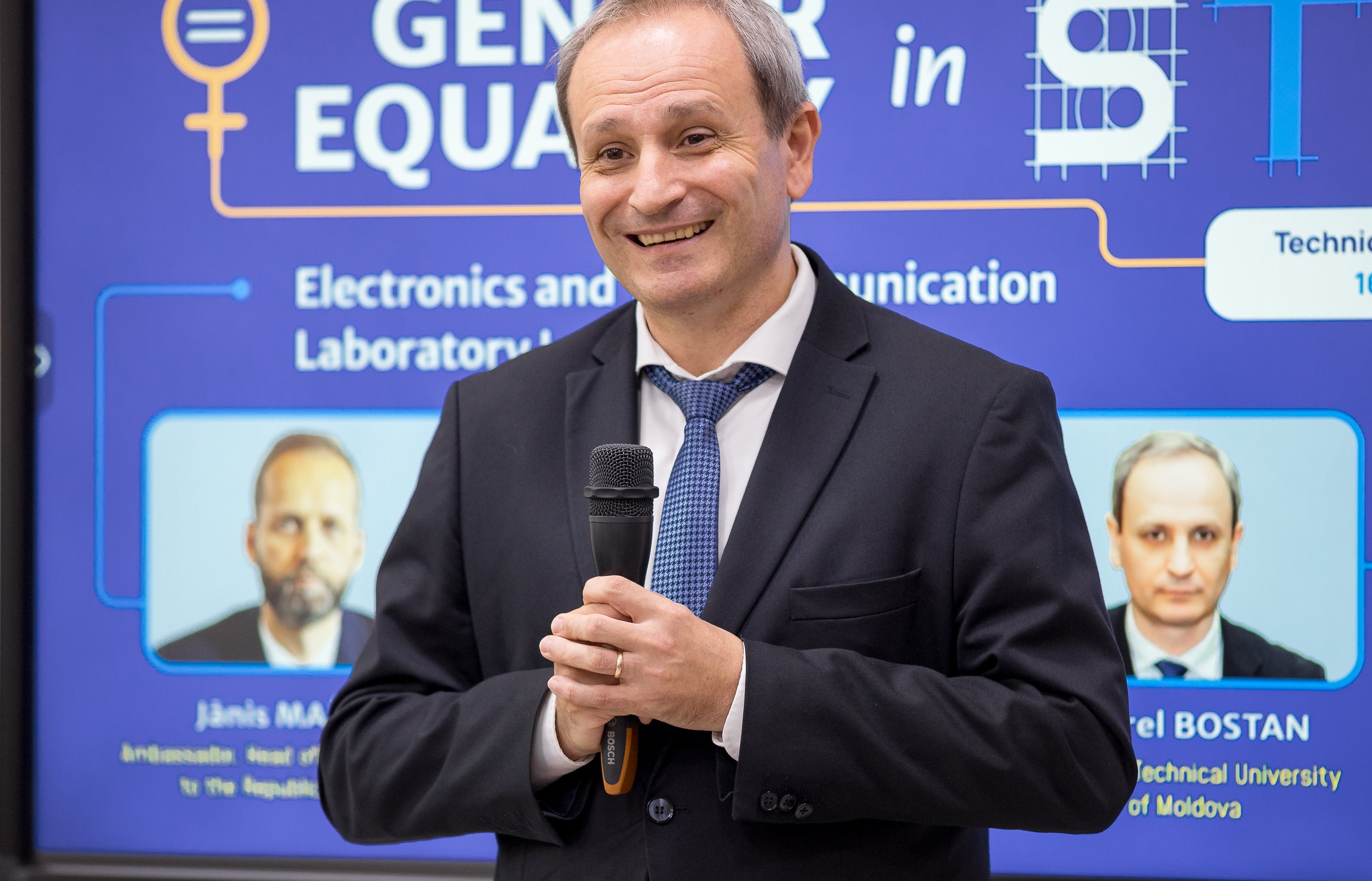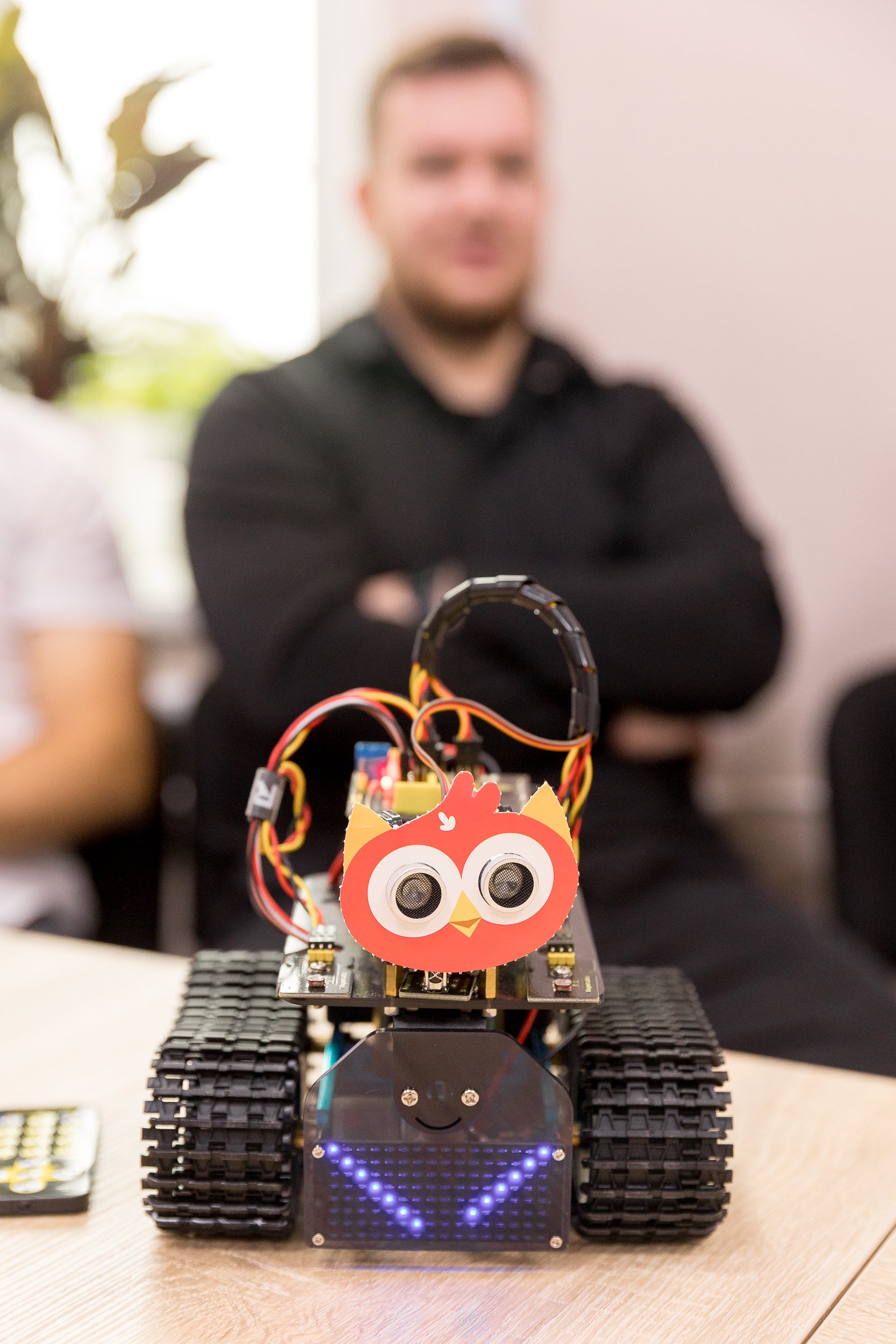New lab opens at the Technical University of Moldova, equipped with the support of UN Women, and funded by the European Union
Date:
More than 400 students currently enrolled in the Electronics and Telecommunications Department at the Technical University of Moldova will benefit from this modern laboratory, which is equipped with new tools, including DIY radio kits, Arduino kits and other essential electronics tools.

During the event, H.E. Jānis Mažeiks, Ambassador, Head of the EU Delegation to the Republic of Moldova, emphasized that the European Union sees women’s rights and empowerment as core values. "To ensure that women and girls contribute equally and thrive in STEM, we must remove access barriers, providing them with the necessary equipment and resources to learn, innovate and lead.” he said. “Today, we are taking a concrete step in this direction. This is not just a donation but a strategic investment in Moldova’s future, supporting the girls who will help shape it – a future without barriers and full of opportunities. This is our gesture of solidarity and support for Moldova, which has taken one step closer to joining the European Union."

Over the years, UN Women Moldova has made significant efforts to empower girls and women to pursue and thrive in STEM careers. Globally, women make up only 29 per cent of the workforce in STEM, pointed out Dominika Stojanoska, UN Women Moldova’s Country Representative. "This disparity is not due to biological factors but to stereotypes and biases that suggest girls are not suitable for sciences or research,” she said. “I hope that by creating and opening this lab and other initiatives we’ve undertaken, we will attract more girls to this field. When gender inequalities exist in certain fields, they later reflect in the labor market, particularly in wage gaps. In Moldova, STEM wage gaps are among the largest because so few women work in STEM."

Viorel Bostan, Rector of the Technical University of Moldova, highlighted that the new lab represents the university’s commitment to equity and innovation. "We fully support promoting gender equality in STEM. We want to increase the number of girls applying for engineering specializations. We've always recognized that we have an issue,” he said. “When analyzing the gender ratio among students and faculty, we find that we are indeed below the national average. There are multiple explanations, including the stereotypes that influence us from childhood when boys are given construction toys and girls are given dolls. Whether we like it or not, we perpetuate these stereotypes. In the Mechanical Engineering Specialty, we have five female students and 80 male students. We want to balance this. We feel responsible for promoting gender and will continue to make significant efforts."

During the event, students showcased projects they made using the new equipment available in the lab, demonstrating their advanced skills in using the Arduino platform and meticulously assembling electronic devices. The projects included a mini robot tank, a miniature crane with an automated arm and a portable and compact version of the Tetris game.

Among the standout students was Nelea Manin, a second-year Electronics and Telecommunications student, who assembled six electronic kits. "My group has five girls and six boys, so it’s almost equal,” she explained. “I believe STEM is a field where you develop both technical and creative skills. You learn so much information that can be applied anywhere, and it’s useful for both girls and boys. The skills you gain help you solve any problem, including fixing broken things at home."
Manin encouraged other girls to consider a career in STEM. "Girls, try every field—work on a small project, assemble something electronic or related to programming, then try making a dress,” she said. “This way, you’ll discover what you’re passionate about. Electronics is an exciting field that constantly challenges you, which is foundational to creating any new technology."

The new laboratory at the Electronics and Telecommunications Department of the Technical University of Moldova (Stefan cel Mare Blvd. 168, 3rd floor, room 1-321) was equipped under the EVOLVE4GE project, funded by the European Union and implemented by UN Women Moldova. The laboratory is designed to create a dynamic learning environment that inspires students, focusing on involving more girls and advancing research in electronics at the Technical University of Moldova.

